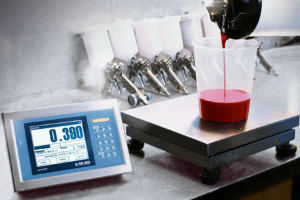Pneumagen’s Neumifil Shows Promising Results in Phase 2 Study
In a significant stride towards improving prevention and treatment options for respiratory viruses, Pneumagen has unveiled the results of its Phase 2 trial data for Neumifil, a novel intranasal antiviral therapy.
Published in the peer-reviewed journal Infectious Diseases and Therapy, the findings demonstrate that Neumifil meaningfully reduced the incidence and severity of influenza symptoms, providing new hope for those at heightened risk of complications.
A New Approach in Viral Defence
Neumifil, developed by Pneumagen, is a broad-spectrum antiviral designed for intranasal use.
Unlike conventional treatments that target specific strains, this therapy acts across a wider range of respiratory viruses. Administered via nasal spray, Neumifil aims to intercept infection at its primary point of entry – the upper respiratory tract.
To assess its efficacy, Pneumagen conducted a rigorous Controlled Human Infection Model (CHIM) trial involving 104 healthy adult participants. The randomised, double-blind, placebo-controlled study was designed to simulate real-world conditions.
Participants received either Neumifil or a placebo before being exposed to the influenza virus, allowing researchers to monitor infection rates and symptom progression in a controlled setting.
Compelling Results from a Robust Study
The results were both clear and compelling. Participants treated with Neumifil experienced a statistically significant reduction in symptomatic influenza compared to those receiving the placebo.
Furthermore, those who did contract the virus reported fewer and less severe symptoms.
Equally important, the treatment was well tolerated, with no new safety concerns arising throughout the trial – a key consideration for any new therapy, particularly one intended for widespread preventative use.
The publication of these findings in a respected medical journal not only adds scientific credibility but signals a potentially game-changing moment in the fight against seasonal flu and other viral respiratory infections.
Leadership Perspective: A Step Forward for At-Risk Patients
Commenting on the milestone, the Chief Executive Officer of Pneumagen, expressed pride in the achievement. They are proud to have the results of their Phase 2 study of Neumifil published in a high-impact, peer-reviewed journal.
This publication highlights the potential of their novel intranasal broad-spectrum antiviral therapy to dramatically improve outcomes for patients with virus-induced exacerbations and reduce the burden on healthcare systems worldwide.
Pneumagen’s Chief Medical Officer and lead author of the study, also added their thoughts, commenting that there remains a significant unmet need in preventing viral-induced exacerbations in patients with underlying pulmonary diseases.
In their study, they observed meaningful reductions in symptom severity and viral load, offering hope for a new, effective intervention for at-risk populations.
Looking Ahead: Focus on Vulnerable Populations
Following the success of this trial, Pneumagen plans to advance the clinical development of Neumifil with a particular focus on protecting vulnerable groups – such as those with chronic respiratory conditions – from virus-induced complications.
As respiratory infections continue to strain global health systems, especially in winter months, an effective preventative measure like Neumifil could prove to be a timely and transformative solution.
Conclusion
With influenza and other respiratory viruses posing a continual threat, especially to those with pre-existing health conditions, Pneumagen’s Neumifil could mark a turning point in how individuals prevent and manage infections.
The positive Phase 2 data not only validate the scientific promise behind this intranasal antiviral but also offer a glimpse into a future where fewer people fall seriously ill from seasonal viruses.
As further trials are planned, Neumifil stands poised to make a lasting impact in global respiratory health.
News Credits: Neumifil shows promise in treating influenza with positive phase 2 data
Things you may also like:















